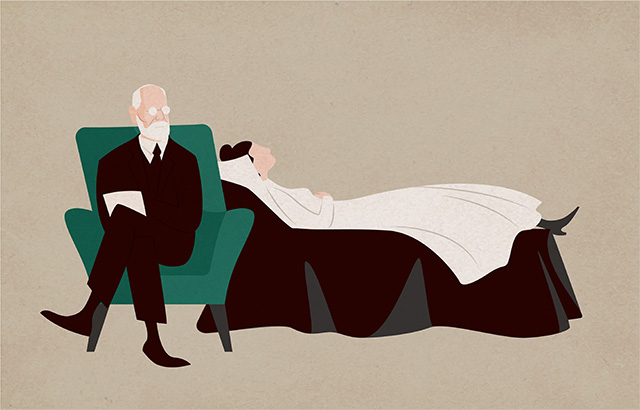The Experience of Hypnosis
Is Hypnosis Woowoo?
Hypnosis is a lot more than just woowoo. And I say that with a little bit of a wink. Hypnosis could be considered a type of alternative healing that includes guided visualization, focused attention, and deep relaxation. In this light or deep state of trance, we can access our unconscious mind and create positive changes we seek. And you might wonder why someone would want to do that.
I recently interviewed clinical hypnotherapist, Barb Davies, who explained to me more about the impact that hypnosis has on our mental health. Barb spoke about how she uses hypnotherapy to help her clients with a variety of mental health distresses, to heal holistically and naturally. Hypnotherapy can be a great tool for mental, emotional, and physical healing. You can work with a trained hypnotherapist and you can also practice self-hypnosis, which can be equally as beneficial (Marchant, 2011).
As some of you may already know, I broke my foot in 2020. In the following months, the bones healed, but I was diagnosed with Complex Regional Pain Syndrome. This complication has left me with chronic pain in my foot that I am still trying to manage and heal. I had already experienced the healing power of hypnotherapy during my mental health journey and wanted to try it again for the CRPS.
I found hypnotherapy so helpful and healing that I decided to learn more about it.
“Trance is a natural everyday experience.”
- Milton Erickson
Over the next year, I certified as a hypnotherapist and wanted to use this amazing technique to help others. So, is hypnotherapy woowoo? It’s definitely different from medication and conventional treatments, but I believe it can be very effective for holistic healing.
History of Hypnosis
The modern roots of hypnosis can be traced back to Franz Mesmer, a German physician. He used animal magnetism to develop mesmerism and his theories on the balance of magnetic power in our bodies. A decade later, the idea of animal magnetism was disproved due to its lack of scientific support; however, Mesmer did alleviate many patients' problems and fascinated the medical professionals of the time. James Braid, a Scottish surgeon and one of Mesmer's most notable successors as a clinician, is credited with coining the term “hypnosis”. The word hypnosis stems from the Greek word for sleep and alludes to the deep relaxation one enters during hypnosis.
Sigmund Freud also initially worked with hypnosis, but eventually abandoned it in favor of psychoanalysis. The American Psychological Association founded Division 30, Society of Psychological Hypnosis, in the latter half of the 20th century. Since then, hypnosis has undergone scientific studies and further research and development.

Milton Erickson, an American psychiatrist and psychologist, is one of the most well-known proponents of hypnosis of the 20th century. He is sometimes referred to as the father of modern hypnotherapy because of his extensive influence. Erickson contracted Polio in his teenage years and overcame his paralysis with what would be the start of modern hypnotherapy.
He suffered from post-polio symptoms throughout his life, which resulted in Erickson working in private practice from home. He dedicated his life to the study of hypnosis and explored the connection between hypnosis and medicine, as well as a host of induction techniques and approaches. Certainly, Erickson’s approaches are not without criticism, but are still widely used and taught.
Hypnotherapy for Stress and Anxiety
A study, conducted in 2016, observed the brains of people while undergoing hypnosis. It was discovered that changes appeared in the areas that account for emotional change and feelings of self-consciousness. Hypnotherapy can help calm your mind and body through deep relaxation. In this state, you may be better able to figure out the causes and strategies for your distress. It seems that hypnotherapy works very well for alleviating stress, anxiety, and depression. Hypnosis can also be combined with other therapies, such as CBT.
There are several ways hypnotherapy can be used to manage stress. For starters, hypnosis can help you achieve a deeply relaxed state, while releasing tension and triggering a physical and emotional relaxation response. This will aid in preventing health issues brought on by ongoing stress. Hypnotherapy can also assist you in making several positive changes to your lifestyle that can lower your stress levels. Similarly, you can use hypnotherapy to help you stop any unhealthy habits you may have picked up as a stress reliever, like smoking or compulsive eating.

By promoting focus and relaxation, self-hypnosis also has therapeutic advantages for alleviating anxiety. Numerous issues have been successfully alleviated using hypnosis. This includes digestive problems, like IBS, which are typically related to anxiety or stress. Given how stress can affect nearly all bodily systems, hypnosis can also be used to help with lowering blood pressure, and many other physical or mental issues.
Aside from mental health, hypnotherapy is also used in business and athletic coaching, to achieve peak performance. Although this is not what Barb specifically specializes in, it goes to show how versatile hypnosis is.
Misconceptions About Hypnosis
On the podcast, we also talked about some common misconceptions about hypnotherapy. Barb helped clarify what is fact about hypnosis and what is fiction. Here are some things we discussed.
A person under hypnosis is asleep or unconscious
While a lot of movies portray hypnosis like this, it is certainly not fact. You are aware and focused when you are in trance. You are simply in a state of deep relaxation, but not asleep. The type of brain waves also differ between being fully awake, asleep, and in hypnosis. These different frequencies can be measured and we can tell which state the brain is in, depending on the frequency.
A person can be hypnotized against their will
Stage shows may make you think you can be made to cluck like a chicken, but keep in mind that hypnotherapy is a consensual process. Hypnotists cannot make other people do anything they do not want. At all times, you have control over the session and when or if you would like to end it. Your unconscious mind will not accept anything that goes against your values or your will and will not accept any suggestions that could harm you or put you in danger.

A person doesn’t remember what happened during the session
While it is true that you can ask your hypnotherapist to make positive suggestions and then ask your unconscious mind to forget them, this is your choice to request. You will be completely aware during the session and will remember what has happened. If you feel that your unconscious mind can better process the positive suggestions without interference of your conscious mind, you may ask your hypnotherapist to add a suggestion to forget. This does not mean that suggestions can be made that are negative or would harm you.
A person can get stuck in hypnosis forever
Research suggests that there are no persons that have ever been stuck in a state of hypnosis. Having said that, we go into a state of hypnosis several times each day naturally. Notably, when we first wake up in the morning and are still sleepy and when we are just about to fall asleep at night. These can be likened to “dream states”, but are really a state of hypnosis. We also self-hypnotize when we do repetitive things like brush our teeth, take a shower, or drive somewhere familiar.
The Takeaway
Despite numerous myths and misconceptions, hypnosis is a simple process that can be utilized as a therapeutic tool. It has been demonstrated that hypnotherapy offers therapeutic benefits, particularly in working with stress, anxiety, and pain. According to some research, even the symptoms of dementia may be lessened by hypnotherapy.
It's essential to keep in mind that hypnosis is a tool. This means that without actually using it, you will not experience the many benefits it has to offer. Sometimes, hypnotherapy works quite quickly and you may see changes or improvements without much delay. Other situations may require a few sessions, to understand and unpack what is going on. As always, listen to your body and decide what is best for you.

Finally, I think that hypnosis is all about awareness.
Most people associate hypnosis with "sleep", although we have already dispelled that myth. You can use hypnotherapy to learn things about yourself, view ingrained thinking patterns from a fresh angle, and get new insight into any issues, enabling you to break free of behaviors and thought patterns that no longer serve you.
Hypnotherapy can help you become more aware of what is happening in your body and it can also support your holistic healing journey.
Sources
Bryant, R. A., Moulds, M. L., Guthrie, R. M., & Nixon, R. D. V. (2005, April). The Additive Benefit of Hypnosis and Cognitive-Behavioral Therapy in Treating Acute Stress Disorder. Journal of Consulting and Clinical Psychology, 73(2), 334–340. https://doi.org/10.1037/0022-006x.73.2.334
Jiang, H., White, M. P., Greicius, M. D., Waelde, L. C., & Spiegel, D. (2016, July 28). Brain Activity and Functional Connectivity Associated with Hypnosis. Cerebral Cortex. https://doi.org/10.1093/cercor/bhw220
Marchant, J. (2017, April 7). Heal thyself: Self-hypnosis. New Scientist. Retrieved September 29, 2022, from https://www.newscientist.com/article/mg21128272-000-heal-thyself-self-hypnosis/
Mottern, R. (2010, October). Using Hypnosis as Adjunct Care in Mental Health Nursing. Journal of Psychosocial Nursing and Mental Health Services, 48(10), 41–44. https://doi.org/10.3928/02793695-20100730-05
Stevens, P. (2018, September). A hypnosis framing of therapeutic horticulture for mental health rehabilitation. The Humanistic Psychologist, 46(3), 258–273. https://doi.org/10.1037/hum0000093
https://thejornipodcast.com/episode-17-hypnosis-with-barb-davies
